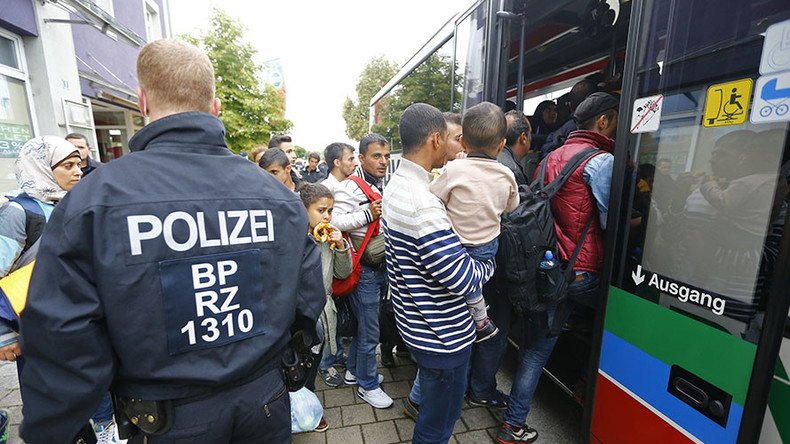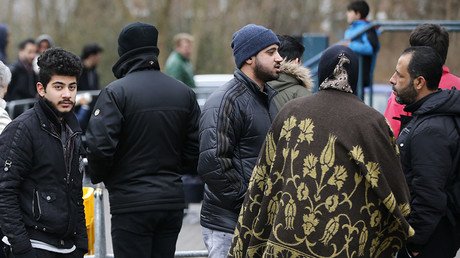Number of N. African refugees sinks as Germany mulls easier deportations after NYE attacks – report

Number of North African refugees hits record lows in Germany this year, after government pushed for fast-track deportations following the New Year’s Eve attacks in Cologne, according to the immigration service’s report seen by local media.
The number of North African refugees hit record lows in Germany this year, after the government pushed to fast-track deportations following the New Year’s Eve attacks in Cologne, according to an immigration service report seen by local media.
Whereas 3,356 asylum-seekers from Algeria, Morocco and Tunisia arrived in Germany in January, this number dropped to 599 in February and only 480 in March, according to an internal report sent from the Federal Office of Migration and Refugees (BAMF) to the German parliament in April and seen by Funke media group’s newspapers.
Out of some 26,000 migrants from the region who came to Germany and applied for asylum in 2015, only 2.1 percent were granted the right to stay – a figure that dropped to 0.7 percent in the first quarter of 2016, the report claimed.
As the majority of suspects involved in the Cologne New Year’s Eve attacks reportedly came from North Africa, the government has started to draft a law, also known as “Asylum Package II.”
Among other restrictive measures, it declares Algeria, Morocco and Tunisia “safe countries of origin,” therefore cutting their citizens’ chances of being granted asylum to virtually zero and making deportation of rejected applicants easier.
Although the proposal is yet to come in force, it is believed to have had a remarkable impact on the number of North African arrivals since the outset. “The very discussion about introducing the law has led to a tangible reduction in new arrivals,” the BAMF report said, as cited by Berliner Morgenpost newspaper.
BAMF insisted that introducing a “safe country” rule would have a “deterrent effect” and would practically lead “to a reduction in the number of groundless asylum applications from Morocco, Algeria and Tunisia.”
The law is expected to pass smoothly through the Bundestag, the lower house of parliament, where a ruling coalition of SPD, CDU and CSU has a majority. But in the Bundesrat, the upper house representing German regions, the coalition heavily depends on the Greens.
Majority of Cologne NYE attackers are from Morocco, Algeria – report https://t.co/7VJXWi0mRppic.twitter.com/zU2GLjlpYx
— RT (@RT_com) April 6, 2016
The party previously said that before the law is given the green light, it needs to be proven that the law would really “bring something.”
New Year’s Eve in Cologne, known for more than 1,000 victims of sexual assault, harassment, robbery and theft, has tarnished the image of refugees arriving in Germany. It also added fuel to growing public anger over Chancellor Angela Merkel’s migrant policy, termed a “welcome culture” in Germany, forcing the government to respond.
The “Asylum Package II,” agreed by Merkel’s cabinet in February, is now due to pass through the parliament for adoption. It also includes putting on hold family reunifications for two years. The package enables easier deportations of refugees and other non-Germans sentenced to more than one year in jail for crimes such as causing bodily harm, murder or rape.
It also says that migrants are responsible for their successful integration into society, particularly by learning German and taking part in community life. In addition to that, refugees will have to pay monthly fees for their integration courses.
Rights groups such as Amnesty International warn that the law will affect thousands of people who could have some grounds to claim asylum. “The new law will enable such a fast process that it will by necessity lead to wrong decisions,” Amnesty International wrote to German MPs.













